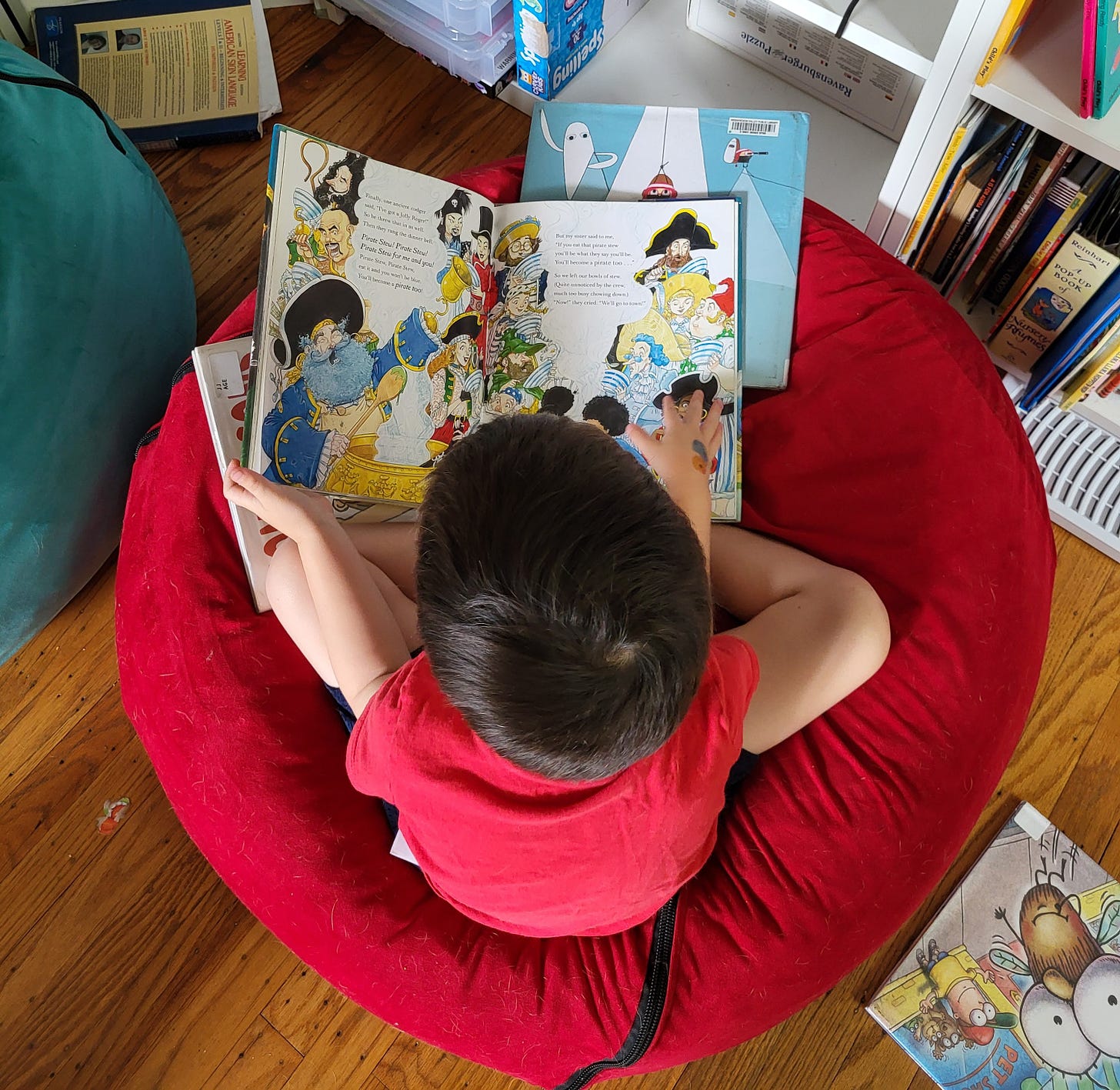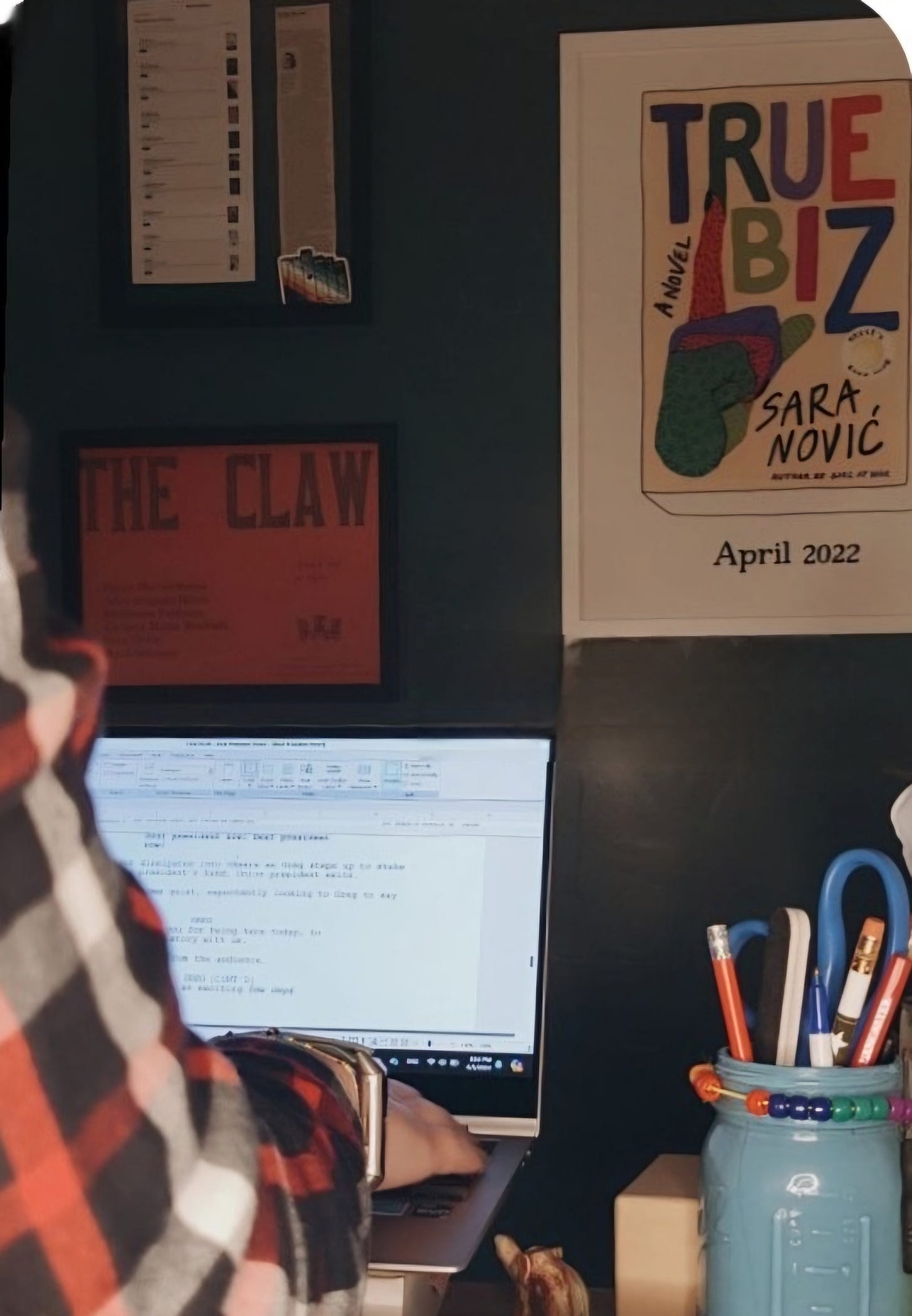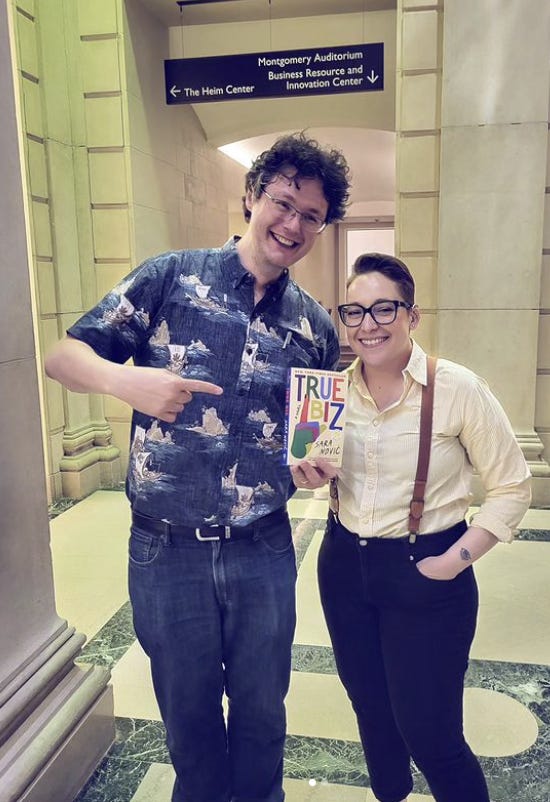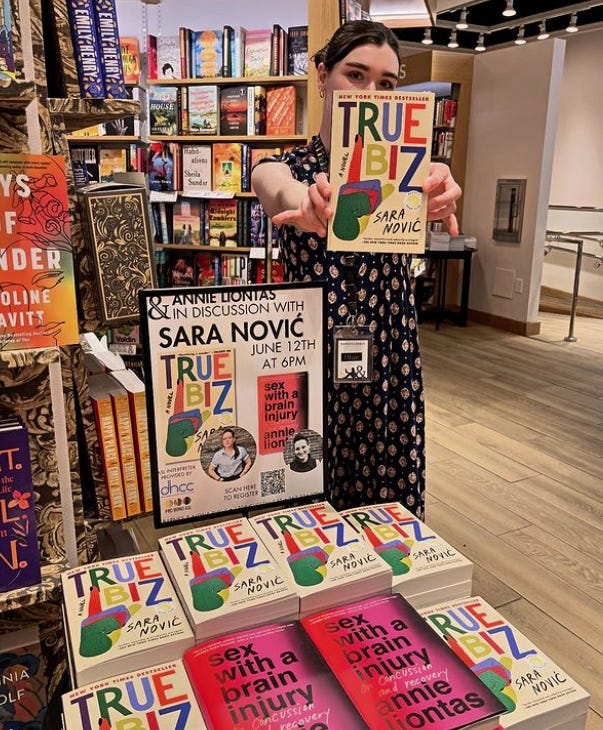I bruise easily. This isn’t a metaphor. I have always been this way—in childhood my limbs were covered with marks from encounters with furniture or jungle gym equipment I hadn’t even clocked while happening. Just Monday I cut the grass and ended up with row of plum-colored circles on each forearm from where they hit the handle bar throughout the process.
I bruise easily, and this is a metaphor. I have always been this way—in childhood I was “dramatic,” called Sarah Bernhardt in a manner I understood was bad but not why until I just looked it up on Wikipedia. Upon learning that repression would earn me fewer weird French nicknames, I gathered up my own feelings, my bullies’ words, sad stories from books and TV, horrors of the six o’clock news, and held them inside myself, at which point I became “too shy.” (0 stars, do not recommend.)
Today, as a parent to S, a four-year-old who some might say overshares his feelings, there are times when I very much understand the appeal of asking a big feeling child/human to rein it in. Bearing witness to his raw honesty at each waking moment is exhausting. Wouldn’t it be nice to take a break from all these feelings, I think sometimes, even as I know such a thing is impossible, for both of us.

Which is to say, when I came to writing I was instantly thrilled at its power. Not because it allows me to process or externalize my thoughts and feels—though that can be a side effect—but because writing is one of the few things I can do in this world where feeling deeply is an asset.
To be a tenderhearted writer is to inhabit another’s humanity, wide-eyed and generous, to build that character and her world from the heart outward. In turn, if we are lucky enough to get the thing published, readers receive these fully-realized characters and root for them, feel for them, occasionally hate them. It’s a bit of magic, to make something—empathy, antipathy—out of nothing like that.
But somewhere along the journey from writer to author, being tenderhearted becomes being “too” tenderhearted again, swinging back from asset into liability territory. A book, a tangible object of its own, is easy for readers to separate from the humanity of its author, even if we haven’t quite been able to manage that yet ourselves.
This transformation is what makes a book such a miraculous piece of technology, and yet somehow, the feelings remain.
I can’t put a book out into the world and never think of it again, (though I’m sure some writers can). I can’t quite let negative things said about that book roll off my back like I know I am supposed to do. But what I can do is go to the place where my tenderheartedness is actually useful—that is, back to work.

This isn’t a productivity talk, exactly. There’s an important place for rest, and even an occasional place for wallowing, in all of our lives. (That said, if you do need a productivity pep talk, #1000WordsofSummer is happening right now!) Mostly, it’s just a reminder that sometimes the thing that feels like your biggest pitfall might actually be a strength in a different context.
As for S, well maybe that’s another place my big feelings can be of use. I can help him find the superpower inside his softness, too.
BIZ Biz
The close of One Book, One Philly with the great Ilya Kaminsky was a blast; thank you to all who came out.

If you’re in the area and not sick of me yet, please register and/or stop by Barnes and Noble on Chestnut St next Wednesday, 12 June at 6PM to see me in conversation with the CHAMP Annie Liontas. Their book, Sex With a Brain Injury is one of my 2024 favorites so far.




